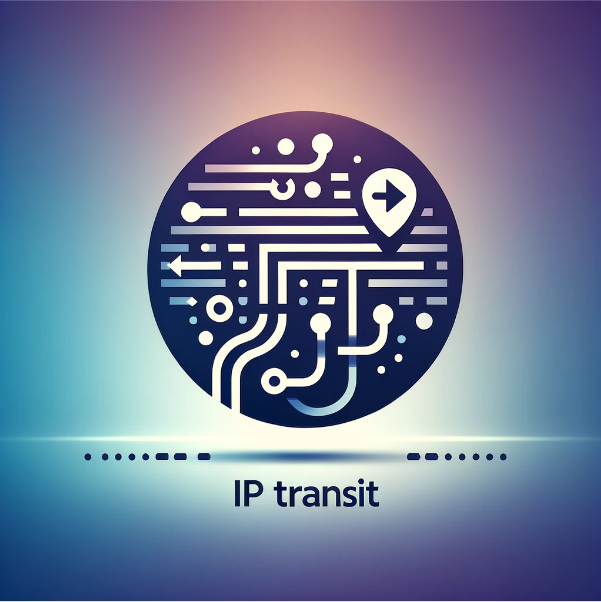In today’s interconnected digital landscape, understanding the nuances of IP transit services is essential for businesses seeking reliable and efficient internet connectivity. IP transit, often regarded as the backbone of the internet, offers a wide range of benefits and cost considerations that can significantly impact a company’s network strategy.

IP transit services bring a plethora of advantages to the table, making them an attractive option for businesses of all sizes. Here are the key benefits of incorporating IP transit into your network infrastructure:
One of the primary advantages of IP transit is its ability to provide superior peering. By directly connecting to other Internet Service Providers (ISPs), businesses can reduce the number of network hops required to access hosts on partner networks. This results in improved network efficiency and overall performance.
Applications and services hosted with the provider are seamlessly integrated into the network, achieving near-LAN transfer speeds. This direct access to infrastructure can significantly enhance the user experience.
IP transit opens doors to global internet access, allowing businesses, ISPs, and telecom companies to expand their product portfolios and reach a broader customer base. This global reach can be a game-changer for businesses looking to expand their digital footprint.
IP transit services are renowned for their high availability, optimal performance, and competitive pricing. They ensure reliable and high-quality internet connectivity, crucial for businesses that depend on uninterrupted access to the online world.
Many IP transit services provide redundancy and resilience, guaranteeing 100% uptime and maintaining a congestion-free network. These fully redundant structures can handle peak utilization efficiently, ensuring a reliable internet connection.
IP transit services offer flexibility in charging options, including flat-rate or burstable usage. This flexibility allows businesses to tailor their internet connectivity plans to meet their specific needs, accommodating changing bandwidth requirements.
IP transit plays a pivotal role in helping businesses expand their customer base by providing access to the global internet. By partnering with an IP transit provider, businesses can reach a larger audience and offer a broader range of services. This expansion leads to increased profitability and business growth. IP transit services also enable organizations to manage costs efficiently, enhance business diversity, and adapt to changing business needs, empowering them to take the next step toward digital transformation cost-effectively and without constraints.
While IP transit offers numerous benefits, it’s essential to consider the cost implications for businesses. The cost of IP transit can vary depending on several factors. For networks with high traffic volumes, IP transit can be expensive. However, the global trend is toward decreasing prices, with IP transit services available for as low as $0.1 per Mbps per month. This price reduction is attributed to the maturity of technology, which allows for better services at lower costs.
The cost of IP transit should be weighed against its advantages, making it crucial for businesses to conduct a cost-benefit analysis based on their specific needs and budget constraints.
| Aspect | IP Transit | DIA (Direct Internet Access) |
| Advantages | – More secure and reliable due to connections with other ISPs.- Flexible routing ability.- Easier management of DDoS attacks.- Suitable for businesses requiring continuous and reliable internet access, especially those with large data transfers, 4K streaming, video conferences, eCommerce operations, and cloud computing storage. | – Simple setup with no specific prerequisites.- Offers a cost-effective solution.- Ideal for businesses not requiring peering with other ISPs and looking for an economical way to route internet traffic. |
| Considerations | – Potential cost concerns for networks with high traffic volumes.- Prices vary but have been decreasing globally, with services available at around $0.1 per Mbps per month. | – Locked to a single ISP, which can lead to downtimes during ISP outages, congestion, or DDoS assaults.- Lacks the ability to peer with other ISPs. |
| Aspect | IP Transit | Peering |
| Definition | A commercial service allowing ISPs to connect to the global Internet through larger ISPs or transit providers. | A process where two Internet networks directly exchange traffic without using third parties for transit. |
| Cost | Paid service with charges varying based on usage to reach multiple ISPs and networks. | Can be settlement-free (no charges) or paid with a monthly fee depending on the agreement between ISPs. |
| Routing | Involves routing traffic through multiple networks, potentially leading to increased latency and performance degradation. | Offers direct connections between networks, resulting in better performance and security with fewer network hops and potential points of failure. |
| Reliability | Relies on multiple networks, introducing additional points of potential failure, impacting overall network stability and reliability. | Peer networks tend to be more reliable, with fewer disruptions such as DDoS attacks on ISP infrastructure. |
Transit providers are instrumental in the global internet ecosystem, serving as the backbone that connects customer networks or downstream ISPs to the internet. Their primary functions include forwarding packets efficiently, supporting routing protocols, and providing access to the global internet, ensuring reliable and high-quality data transfer. Transit providers enable superior peering, direct infrastructure access, and redundant connectivity, offering businesses the ability to connect to other ISPs and exchange traffic directly. This facilitates efficient data transfer, reduces the number of network hops, and ensures a dependable internet connection. Transit providers are essential for seamless and reliable internet access for businesses and end-users.

Evgeny Sevastyanov
Client Support Teamleader